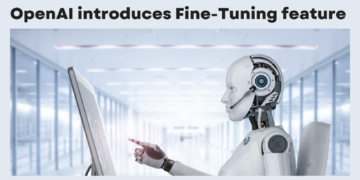The recent upheaval at OpenAI, marked by the ousting and subsequent reinstatement of CEO Sam Altman, has brought to light a mysterious and powerful AI model named Project Q*. The project, heralded as a breakthrough in the quest for Artificial General Intelligence (AGI), has sparked apprehensions and concerns among employees and the broader AI community. In this article, we delve into the details surrounding Project Q* and explore the reasons behind the controversy.
The Boardroom Drama
The saga began with the board’s unexpected removal of Sam Altman from his position as CEO at OpenAI, leading to a tumultuous period of uncertainty. Microsoft swiftly offered Altman a role to head a new advanced AI research team, further fueling speculation about the reasons behind his departure. Surprisingly, nearly 700 OpenAI employees expressed solidarity with Altman, threatening to quit and join Microsoft unless the board was dissolved and Altman reinstated.
Project Q*: A Technological Leap
Central to the ongoing controversy is Project Q*, an AI model developed by OpenAI’s lead scientist, Ilya Sutskever. In collaboration with Szymon Sidor and Jakub Pachoki, this project signifies a breakthrough in algorithms. Notably, Q* stands out for its autonomous ability to solve elementary mathematical problems, transcending limitations posed by its training data. This pivotal achievement, consequently, positions Q* as a significant step towards realizing AGI – the theoretical pinnacle of AI. Capable of performing any intellectual task equivalent to human abilities, AGI is the ultimate goal that the field aspires to achieve.
Advanced Capabilities of Q*:
Logical Reasoning and Abstract Understanding
Reports indicate that Q* possesses an extraordinary ability for logical reasoning and understanding abstract concepts, setting it apart from existing AI models. While this represents a remarkable breakthrough, concerns arise regarding the unpredictability of the model’s decisions, potentially surpassing human foresight.
Fusion of Deep Learning and Programmed Rules
According to researcher Sophia Kalanovska, the designation Q* suggests a blending of two established AI methodologies: Q-learning and A* search. Through this amalgamation, the model could potentially gain enhanced deep learning capabilities integrated with rules programmed by humans. Consequently, this integration leads to a more robust and versatile AI, thereby posing challenges to the predictability and control of its actions.
Towards AGI
Q* is seen as a leap toward achieving AGI, a goal that has long been debated within the AI community. In a previous interview, Sam Altman expressed optimism about AGI becoming a reality within the next decade. However, the rapid progress raises concerns about the ethical, safety, and control implications associated with AGI surpassing human capabilities.
Capability to Generate New Ideas
Unlike current AI models that primarily regurgitate existing information, Q* is expected to proactively generate new ideas and solve problems. While promising for scientific research, this capability introduces the challenge of controlling an AI that can make decisions beyond human comprehension.
Unintended Consequences and Misuse
The advanced capabilities of Q* raise alarms about potential misuse or unintended consequences. The complexity of Q*’s reasoning and decision-making poses a risk, even if deployed with good intentions. The fear is that an AI of this magnitude could threaten humanity in the wrong hands.
Concerns Raised by Researchers about Project Q*
The controversy deepens with reports of OpenAI researchers expressing their concerns about Project Q* in a letter to the board. The letter allegedly outlined worries about the system’s ability to accelerate scientific progress and questioned the adequacy of safety measures. The lack of safeguards for ‘commercializing’ such an advanced model is believed to be a significant factor that led to Sam Altman’s temporary removal.
The Future of AGI and Ethical Considerations
The concerns revolving around Project Q* underscore the necessity for thoughtful consideration and the establishment of robust ethical frameworks in the development of advanced AI technologies. Furthermore, as AI approaches closer to AGI, the ethical implications become increasingly pressing. This potential for AI to surpass human intelligence in diverse domains raises crucial questions regarding control, safety, and the responsible deployment of these powerful technologies.



























